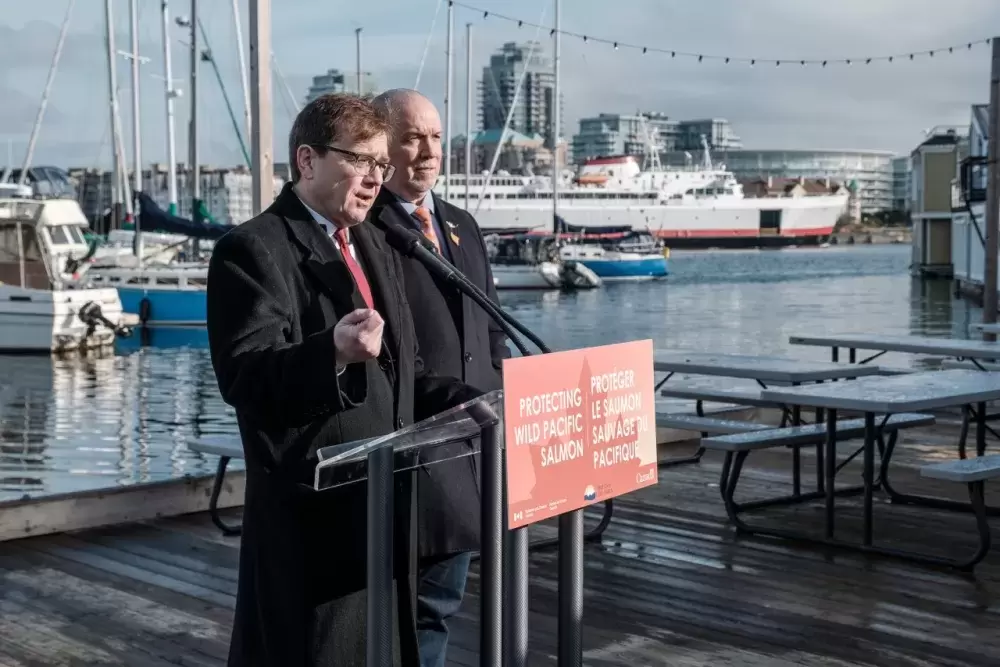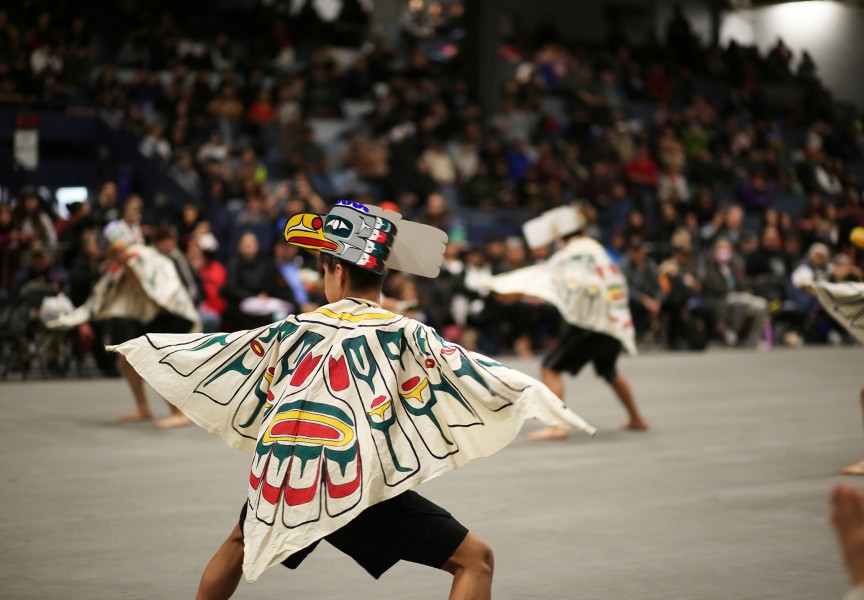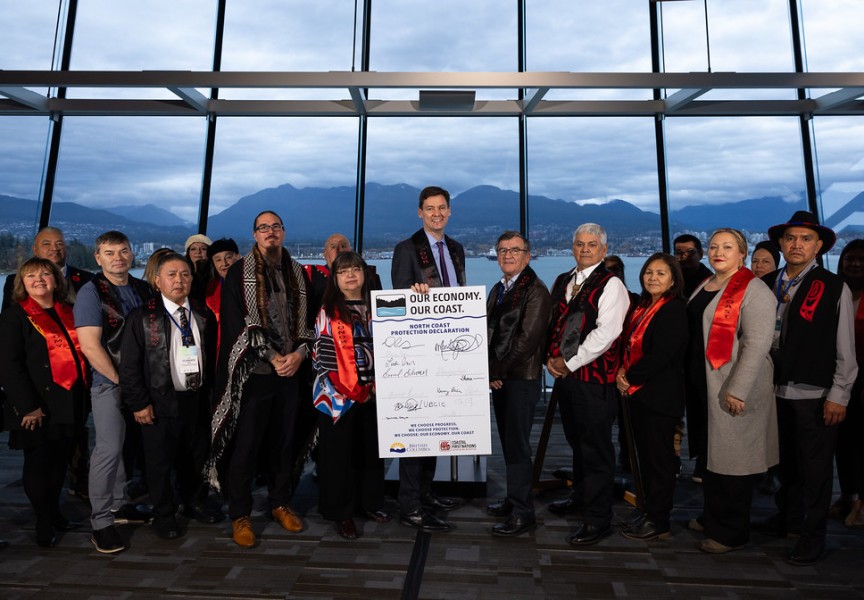Premier John Horgan and Federal Fisheries Minister Jonathan Wilkinson invited potential stakeholders to take part in a $142.85 million program to protect and restore wild salmon stocks on the B.C. coast. The announcement took place in Victoria today.
The British Columbia Salmon Restoration and Innovation Fund is a partnership between the federal and provincial government, with Ottawa kicking in $100 million over five years and Victoria contributing $42.85 million over the same period. Dr. Brian Riddell, CAO of the Pacific Salmon Foundation, emphasized the urgency of the program.
“We are going to start working in the home streams of salmon returning to spawn and to rear, and then we are advancing to the global effects of climate change around the world,” Riddell said. “We are dealing with local communities, we are dealing with federal and provincial groups working together. In my career, this is not common.”
Riddell said there are 345 B.C. communities – most importantly First Nations communities – now committed to “the restoration and production of Pacific salmon.”
On the “innovation” side, Riddell said the newly-developed Pacific Salmon Explorer software program, jointly developed by PSF, federal fisheries and the province, along with private industry, will soon allow the public to access all salmon data, including escapement, catch reporting, returns and habitat information.
“It is going to be a serious challenge to use this money well, but we are here to help you,” he concluded.
Wilkinson said there are serious concerns for wild salmon stocks on the B.C. coast. Since the 1980s, Pacific salmon have undergone a multitude of stresses, natural and human-caused, including the effects of climate change, he said. To that end, last year, Canada announced the Wild Pacific Salmon Policy. Wilkinson said his department also agreed to implement all of the recommendations of the Cohen Commission of Inquiry on the decline of Sockeye Salmon on the Fraser River.
A new Federal Fisheries Act will soon restore all of the protections “that were lost under the Harper government,” Wilkinson said, “And we are working with the Government of British Columbia on land and water-use policies that can impact critical habitat.”
Wilkinson said the Salmon Restoration and Innovation Fund “is now open for business.” According to the joint news release, “the fund is now open to proposals from Indigenous groups, conservation groups, commercial organizations in the wild fisheries and industry sectors, recreational fisheries, as well as non-commercial organizations such as universities and academia, industry associations and research institutions. The fund will support projects that leverage local knowledge such as local Indigenous monitoring and guardianship programs and community-led habitat restoration, among other innovative projects aimed at protecting and restoring wild fish stocks.”
As well, Wilkinson noted a previous federal $5 million contribution to the Pacific Salmon Endowment Fund to support the Pacific Salmon Foundation.
Premier John Horgan acknowledged the help of First Nations leaders in understanding the challenges facing Pacific salmon, and putting together the Wild Salmon Advisory Panel.
“So it’s working with communities, working with Indigenous leaders and working with people who fish,” Horgan said. The premier added that he came to better appreciate the importance of salmon to Indigenous people after twice taking part in the community fishery on the San Juan River with Pacheedaht First Nation.
“It was, in fact, the entire Nation that came out,” he said, with a noticeable sense of awe. “It was a beautiful sunny day – much like today – and they came out to catch coho – wild coho. Fat, shiny coho that would feed the Pacheedaht Nation throughout the winter, and into the next season.”
During the question period that followed, it was noted that the herring fishery is closed in three of the five management zones. And there is added concern about the health of the southern resident killer whale population, which in turn depends on chinook salmon as its primary food source. As for the much-questioned approval of the Trans-Mountain Pipeline expansion, Wilkinson replied that “whether the approval proceeds is an open question.







